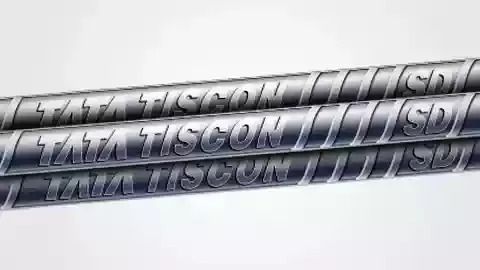Steel Rebar Market Is The Backbone Of Infrastructure And Industrial Growth - Rebar Cost
Steel rebars, also called ‘Reinforcing’ bars, help to strengthen concrete structures. They are used to construct skyscrapers, bridges, factories, oil pipelines and more. Due to urbanisation and industries doing business globally, the demand for rebars is increasing.
The steel rebar market was estimated to be USD 224.5 billion in 2022 and is expected to reach USD 317.4 billion by 2030. Why is the demand for steel rebars increasing? The market is growing due to two main reasons: Industrial growth and urbanisation.
Industries like manufacturing, oil and gas and energy are seeing significant growth. These industries need steel rebars for their projects like factory framework, offshore rigs, pipeline construction and more. The rebars used in the oil and gas industry need to withstand extreme pressure and corrosive environments. The rebars are used in manufacturing plants for reinforcing the walls and floors that use heavy machinery.
Now, the cities demand durable, sustainable and earthquake-resistant structures. Steel rebars help to build such structures by providing strength and flexibility. The structures can withstand high stress and environmental conditions.
Applications of steel rebars
Steel rebars are used in the construction of railways, highways and airports to make them durable and capable of withstanding heavy loads and daily wear and tear. Urban builders use rebars to build resilient structures.
The oil industry offers unique challenges to the manufacturers of rebars. The rebars must be able to withstand extreme conditions that exist deep underground and exposure to corrosive sea water. High-performance epoxy-coated steel rebars or stainless steel variants are a preferred choice.
In manufacturing, steel rebars provide structural strength, which is required to support heavy machinery and production lines. Steel rebars with properties like fire resistance and longer life spans are preferred.
Green practices have gained momentum, and the steel rebar market has responded with innovations like recycled steel rebars. The eco-friendly rebars align with the sustainability goals and also provide structural integrity.
Current trends
● Manufacturers are experimenting with advanced hybrid materials and coatings to make rebars with greater durability and corrosion resistance.
● In emerging countries, projects like India’s Smart City Mission and China’s Belt and Road initiative are driving the demand for high-quality steel rebars.
● As environmental concerns rise, recycled and low-carbon footprint rebars are becoming popular. These rebars meet regulatory standards and are environmentally friendly.
The steel rebar market is expected to grow due to the demands from infrastructure projects, industry expansions and sustainability initiatives. For such mega-projects, steel rebars are essential for building the future. High-performance and eco-friendly rebars have become a necessity for construction that needs to meet modern demands. The market will be shaped by sustainability and innovation. The companies that prioritise innovation will grow, thus ensuring that steel rebars remain the foundation for global growth.
The rebars manufactured in India have properties like greater elongation, uniform stress-bearing capacity, unbeatable ductility and superior bonding with concrete. The rebar cost varies per region and depends on the demand and supply dynamics, raw material costs, production costs, taxes and transportation and handling costs.
